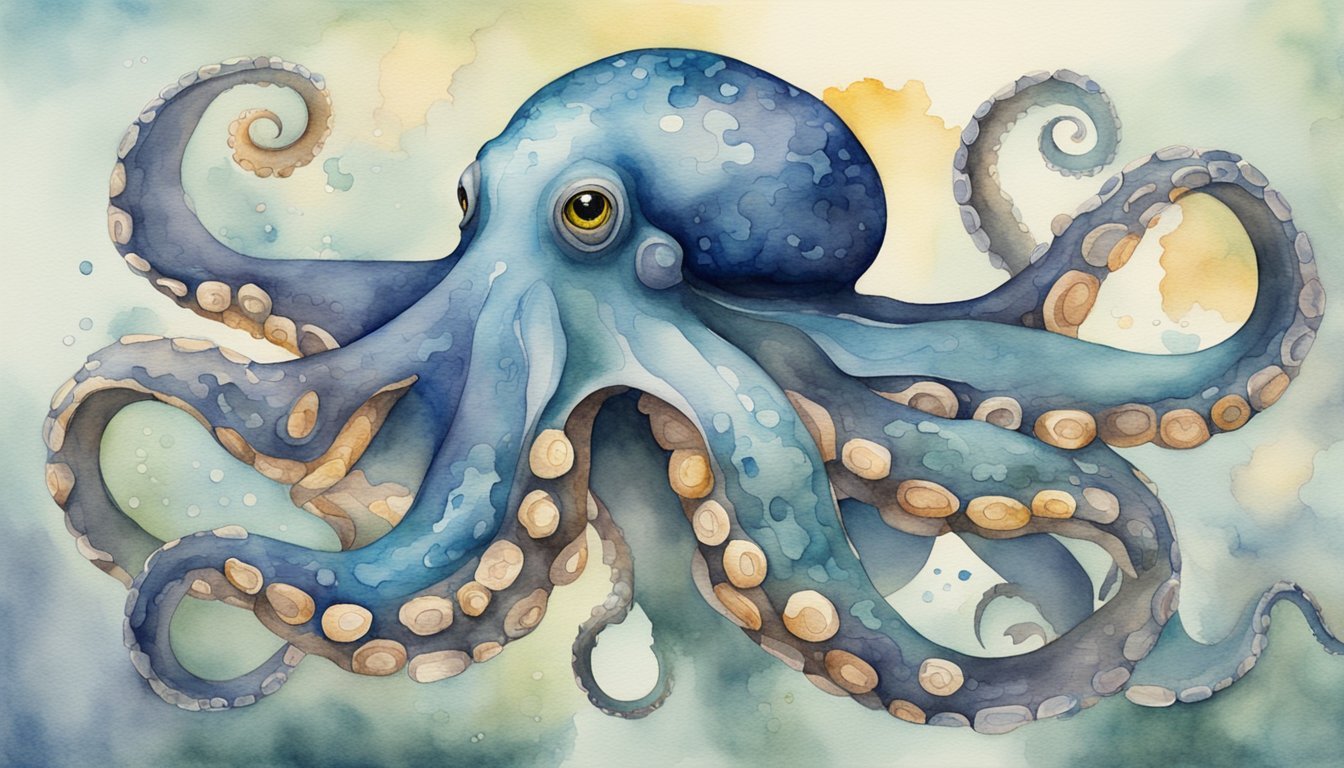Octopus Intelligence and Cognition
Octopuses are renowned for their sophisticated cognitive abilities, ranging from complex problem-solving to exhibiting behaviors that indicate a high level of intelligence and awareness.
Brain Structure and Neural Capacity
Octopuses possess a central brain and a unique nervous system with millions of neurons, some of which are distributed across their eight arms. Each arm has a degree of autonomy, and the nervous system complexity is such that it rivals the intelligence of some vertebrates. Researchers have used MRI techniques and 3D imaging to study octopus brain structures, unveiling that their neural design allows for intricate controls and processing capabilities that can be independent of the central brain.
Learning, Memory, and Problem-Solving
In multiple experiments, octopuses have demonstrated their capacity to learn quickly, retain information, and navigate through mazes. Their problem-solving skills are evident in behaviors such as using tools, like assembling shelters from coconut shells, and finding creative escapes from enclosures, indicating substantial cognitive ability. Anecdotal evidence and controlled studies alike have documented the octopus’s ability to remember solutions to problems and recognize individuals, showcasing significant memory capabilities.
Social Behaviors and Communication
Though often considered as lone creatures, certain species of octopuses engage in social interactions and may even use body language and color changes as a form of communication. Instances of collaborative hunting with reef fish have been observed, along with the use of specific gestures that can organize group activities. This not only demonstrates their intelligence but also suggests a level of social cognition that makes them engage effectively with their environment and other marine life.
Evolutionary Perspectives and Comparative Analysis

Evolution has carved out a unique place for cephalopods, particularly octopuses, to thrive as fascinating exemplars of intelligence in the invertebrate world. Their sophisticated behaviors and complex nervous systems offer remarkable insights when contrasted with vertebrates such as apes, dolphins, and birds.
Adaptation and Evolution of Cephalopods
Cephalopods, which include creatures like the common octopus, have undergone a significant evolutionary journey. Their adaptability is evident in their advanced nervous system, which rivals that of many vertebrates. Over time, cephalopods have developed a range of abilities such as camouflage and problem-solving skills, which are thought to be driven by their unique set of genes. These adaptions have propelled the common octopus and other cephalopods into a class of their own regarding invertebrate intelligence.
Interspecies Intelligence Comparisons
Comparative analysis between species has revealed that intelligence is not the sole domain of vertebrates like apes, dolphins, or elephants. The intelligence of the octopus, with its striking problem-solving and escape capabilities, reveals that there are different evolutionary paths to cognitive complexity. While birds, particularly crows, demonstrate advanced tool use and social behavior, octopuses exhibit a solitary intelligence, having evolved behaviors that ensure survival and adaptation in their underwater environments. This suggests that cognitive abilities can arise independently in different lineages and adapt to meet diverse environmental challenges.

